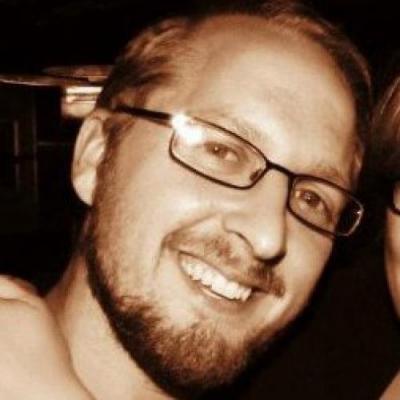Major(s) and Certificate(s): Computer Science, Scandinavian Studies

Graduation Year: 2007
Location: Madison, WI
Language: Norwegian
What have you done since graduating from UW-Madison?
After graduating, I immediately found a position as a software engineer with a small company in Madison. I have joined local organizations, such as the Sons of Norway, and have found many opportunities to volunteer in the community, through tutoring and mentorship programs. One of the most important things I did after graduation was to marry the amazing woman I met during my Norwegian studies at the UW. Together, we have enjoyed traveling all around the globe and experiencing the wonder of our world.
What motivated you to study this language?
Despite not having a direct geneological connection to Norway, I had an interest in Norwegian music, and, being single at the time, decided Norwegian classes might be a good place to meet girls. It turns out that was one of the best decisions I have ever made!
How have these languages enriched your life?
Taking Norwegian at the UW has shaped my life in a number of unexpected ways. Due to the close-knit nature of the students and faculty, I met many life-long friends and made many connections within the community that I wouldn’t have otherwise. I have had some unique travel and education experiences available because of those connections as well. Learning about Scandinavian culture and politics has also really shaped my views on the world. And, as I mentioned previously, I owe my marriage to my Norwegian class. It doesn’t get much better than that.
What do you remember about your UW language classes? How were they different from the other classes you took?
One thing that really set the UW language classes apart from the other courses I took was that they were much smaller and you were able to get to know classmates very well because they often registered for the following semesters with the same instructor. I remember that they were a break from the rigors of typical classes. That’s not to say they were easy, but they were much more relaxed and personal, immersive and engaging. The classes were a lot more interactive than other courses, meaning we didn’t merely sit in front of a lecturer and take notes on their instruction. With Norwegian, we were able to get feedback from the instructors immediately and provide input into the class. There was a lot more collaboration, and I also found the classes a lot more fun. I always felt more comfortable in Norwegian classs and very engaged by the professors (particularly Peggy Hager). They were definitely classes I looked forward to each day!
How valuable were your out-of classroom experiences?
Studying abroad at the University of Oslo was probably the greatest 6-week period of my entire life. I was fully immersed in an international summer school where I met people from all over the world. I can still remember the dorm, my roommates, other friends, the layout of the area surrounding the university and just how I felt living in the city. Debating contemporary political issues in the same classroom as people from war-torn and sometimes impoverished nations was a very enlightening experience. More than any single time period, studying abroad probably played the biggest role in shaping my worldviews. During my junior year, a few students and I formed a Scandinavian Club student organization that organized a few activities together. While we were few in number, we had a great time exploring Scandinavian music, films and culture.
How have you maintained or improved your language since graduation?
Since graduation, I have maintained the use of Norwegian in a few key ways: First and foremost, my wife and I use it to converse, especially when we don’t want others to know what we are saying. It’s sort of like our secret language, and it’s a very useful thing in some instances! Also, the Sons of Norway has some members who are either Norwegian themselves or know some Norwegian. Common phrases can be heard at most events, and there is also an entire library of music, books, and films available at the lodge. Online news sources, videos, and podcasts also help me to stay current and refresh the language. Finally, friends on social media share articles in Norwegian or about Norway or we have discussions in Norwegian.
What advice do you have for current language students?
Do whatever you can to study abroad. It’s a life-altering experience, and something I think everyone should do if they have the means.
What is your favorite word or phrase in a language you know?
Kakkerlakker: Cockroaches